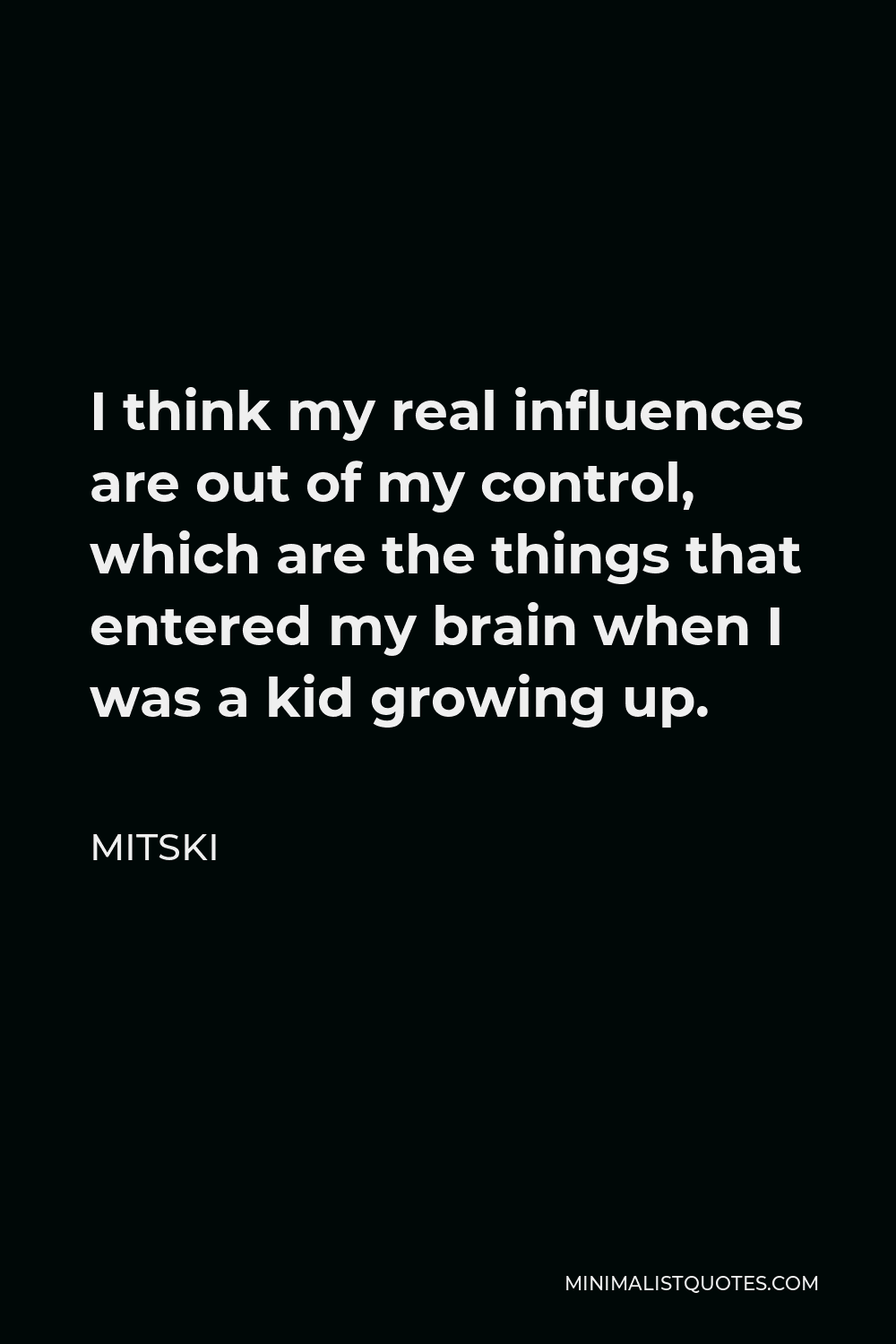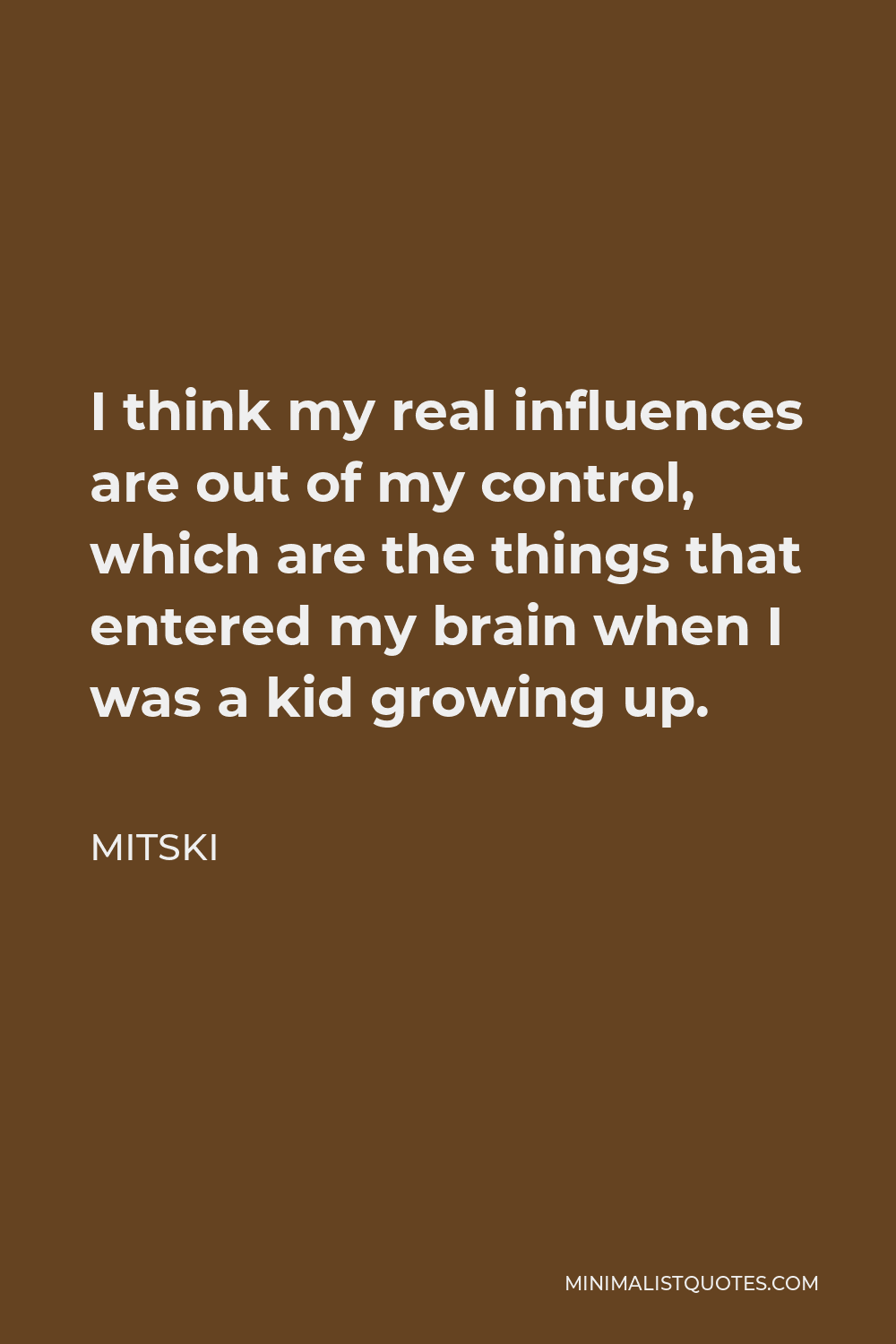I think people don’t realize how little of being an artist is making art.
MITSKII think my real influences are out of my control, which are the things that entered my brain when I was a kid growing up.
More Mitski Quotes
-





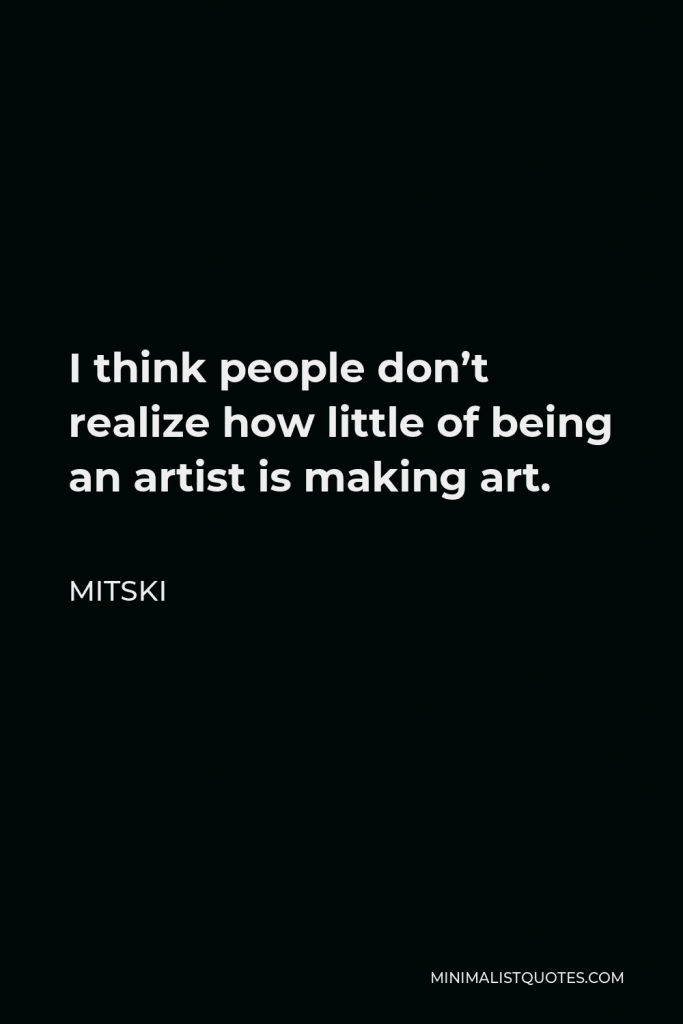

-





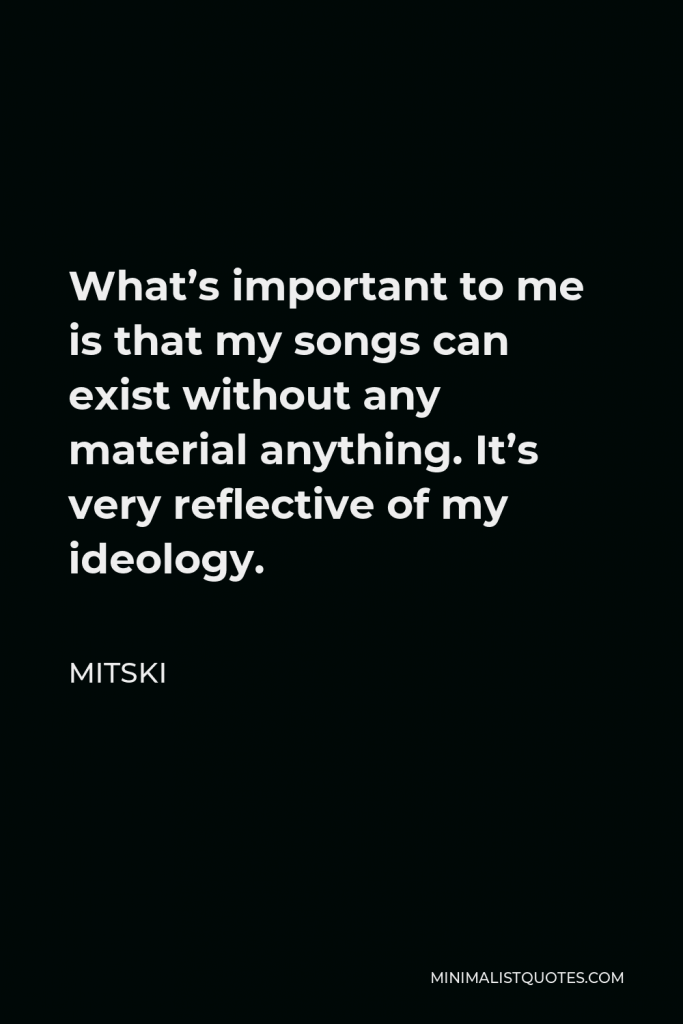

What’s important to me is that my songs can exist without any material anything. It’s very reflective of my ideology.
MITSKI -





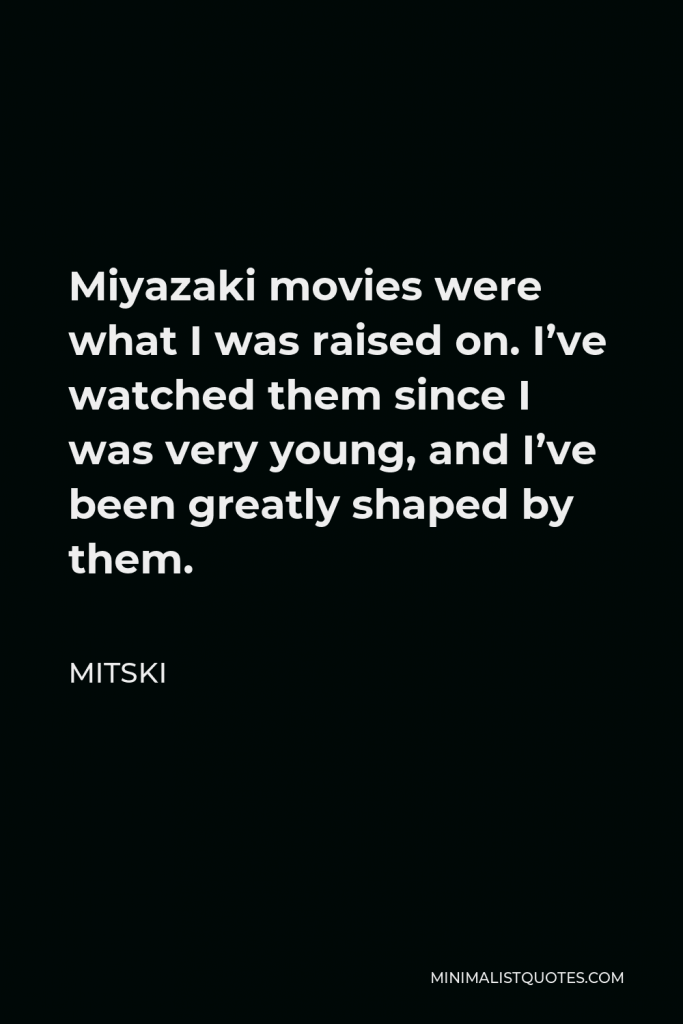

Miyazaki movies were what I was raised on. I’ve watched them since I was very young, and I’ve been greatly shaped by them.
MITSKI -





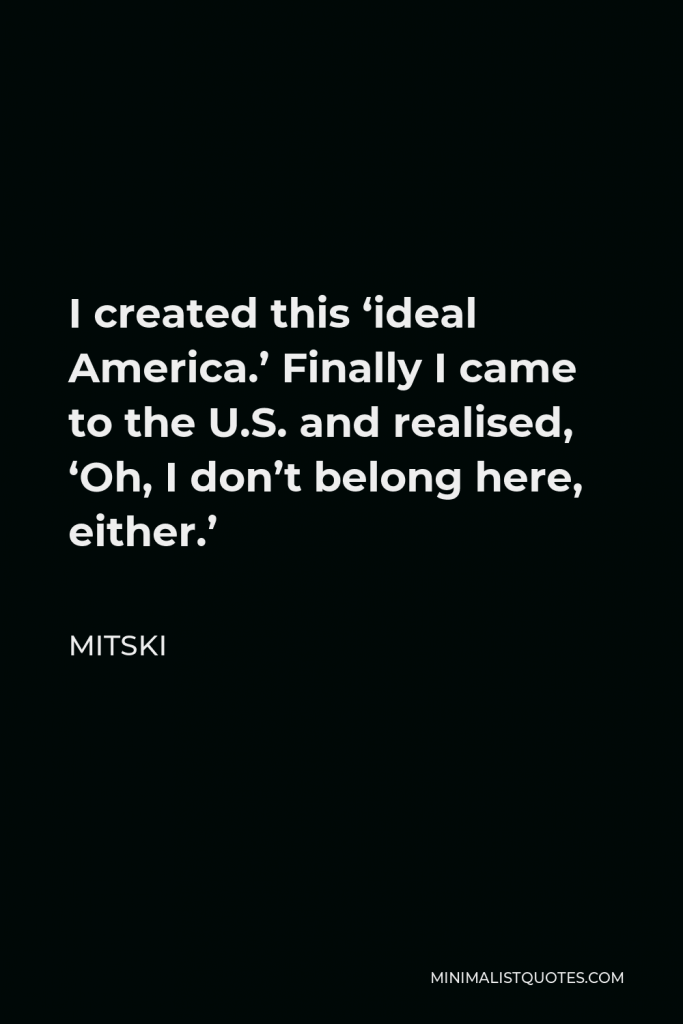

I created this ‘ideal America.’ Finally I came to the U.S. and realised, ‘Oh, I don’t belong here, either.’
MITSKI -





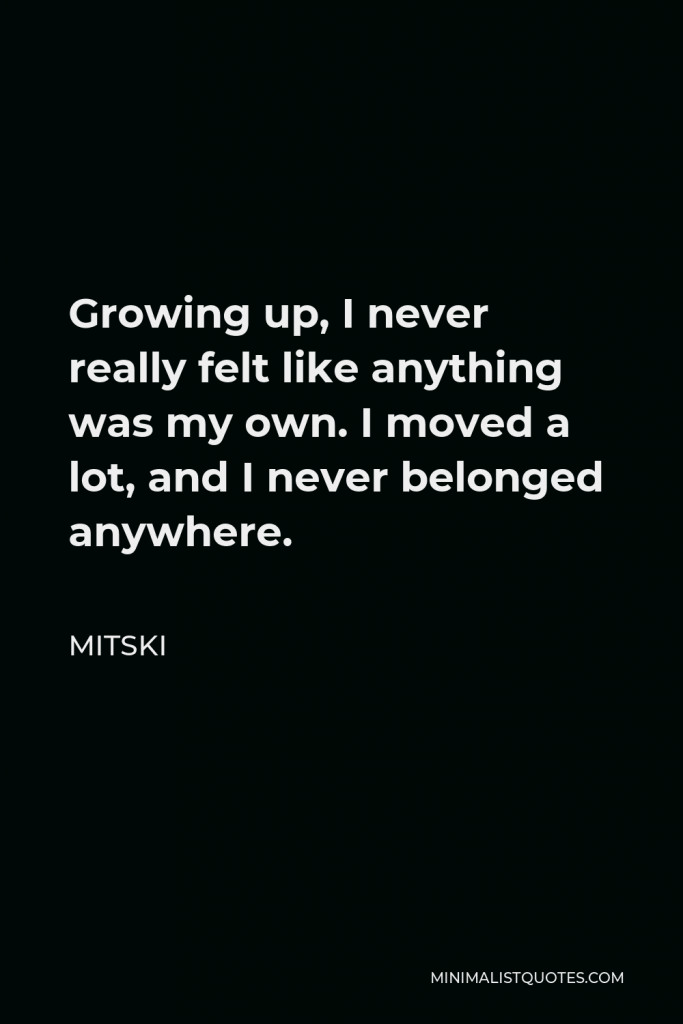

Growing up, I never really felt like anything was my own. I moved a lot, and I never belonged anywhere.
MITSKI -





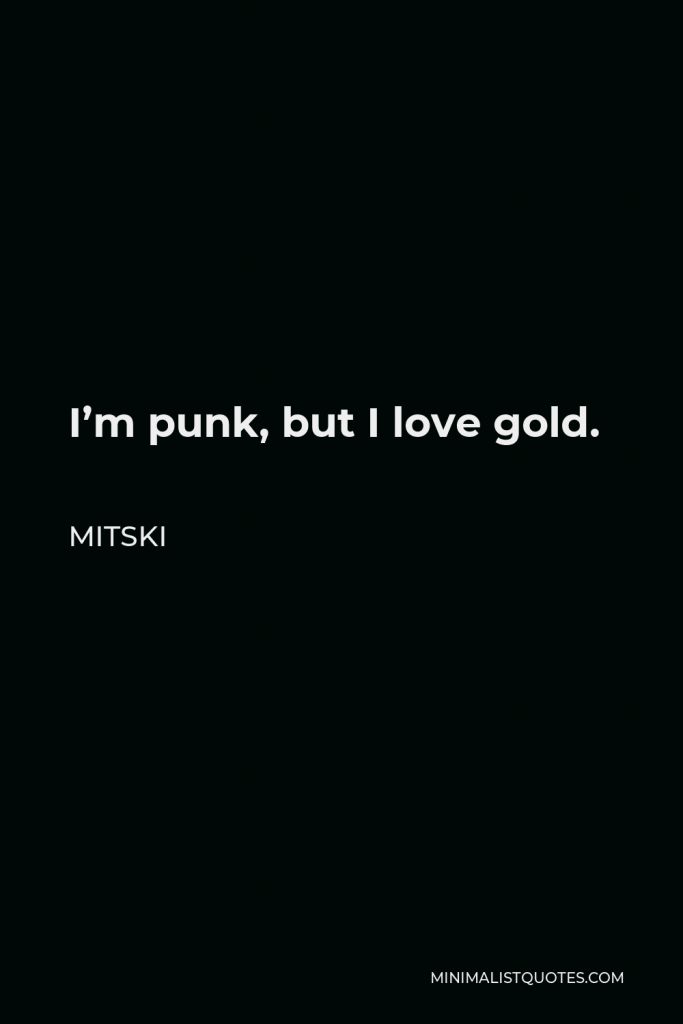

I’m punk, but I love gold.
MITSKI -





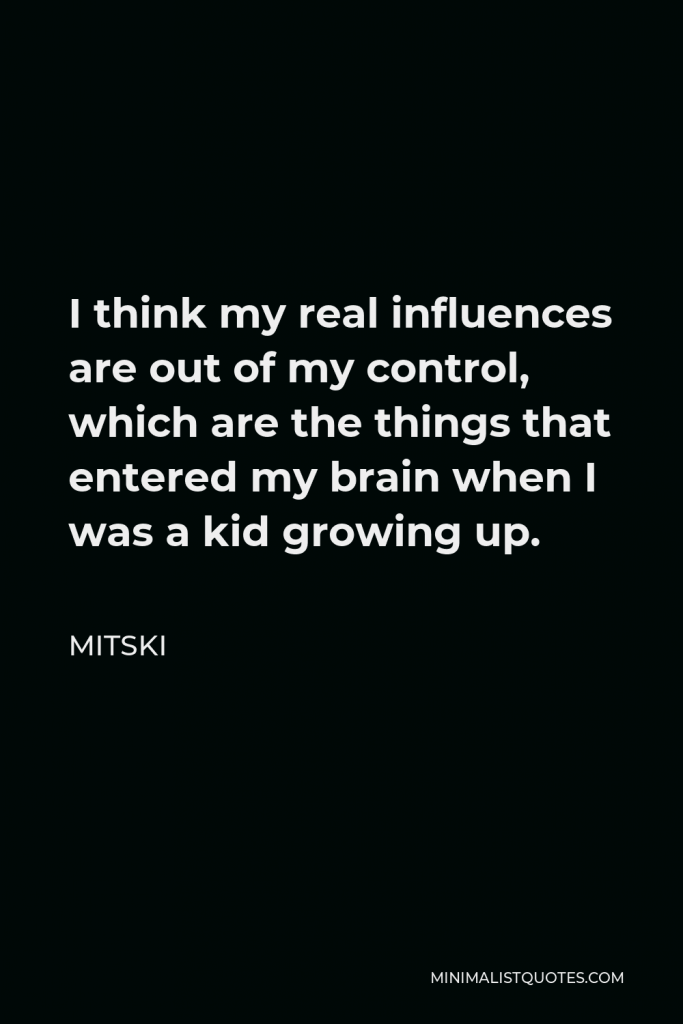

I think my real influences are out of my control, which are the things that entered my brain when I was a kid growing up.
MITSKI -





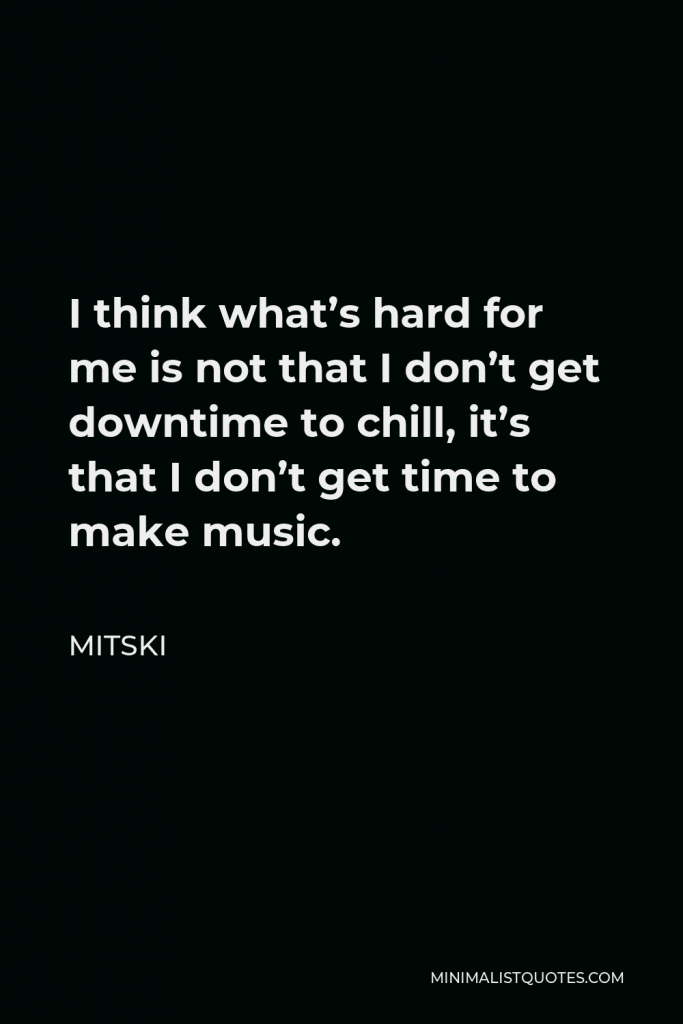

I think what’s hard for me is not that I don’t get downtime to chill, it’s that I don’t get time to make music.
MITSKI -





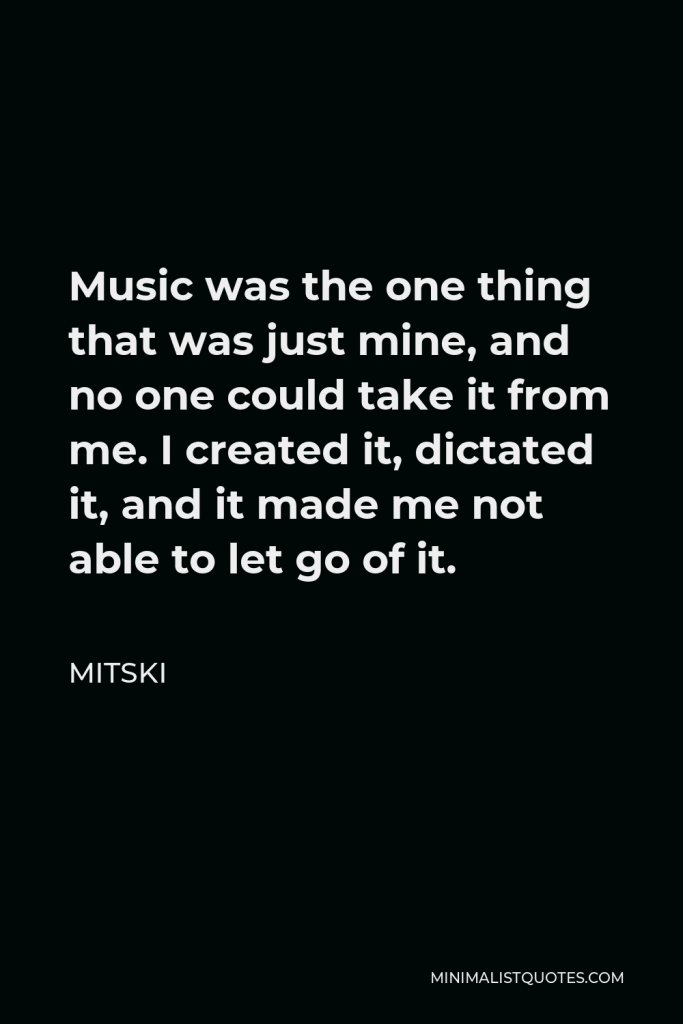

Music was the one thing that was just mine, and no one could take it from me. I created it, dictated it, and it made me not able to let go of it.
MITSKI -





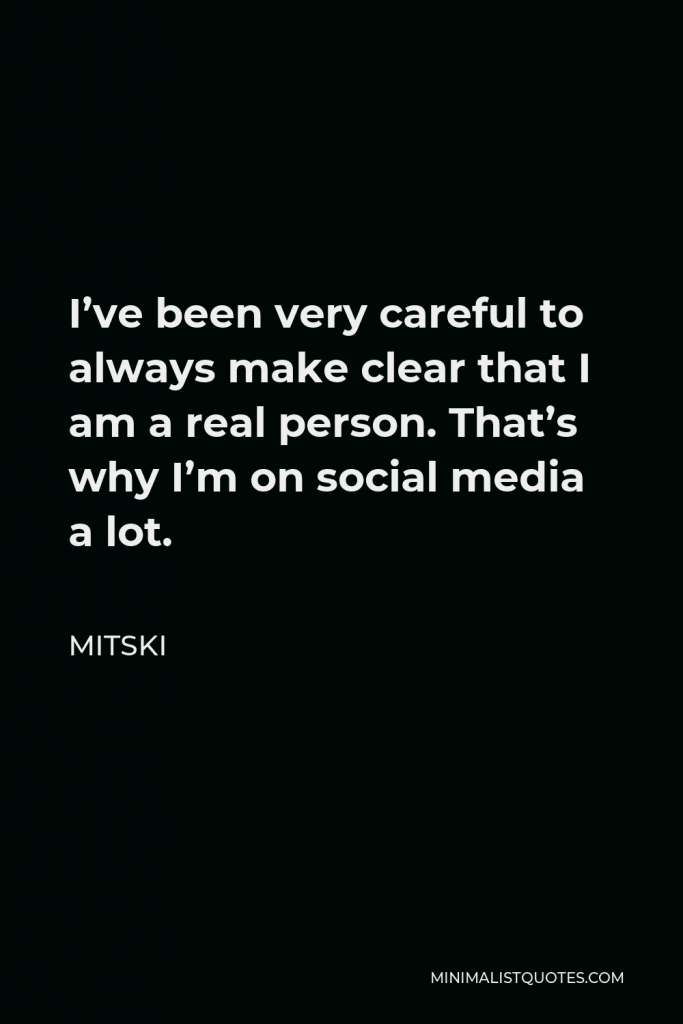

I’ve been very careful to always make clear that I am a real person. That’s why I’m on social media a lot.
MITSKI -





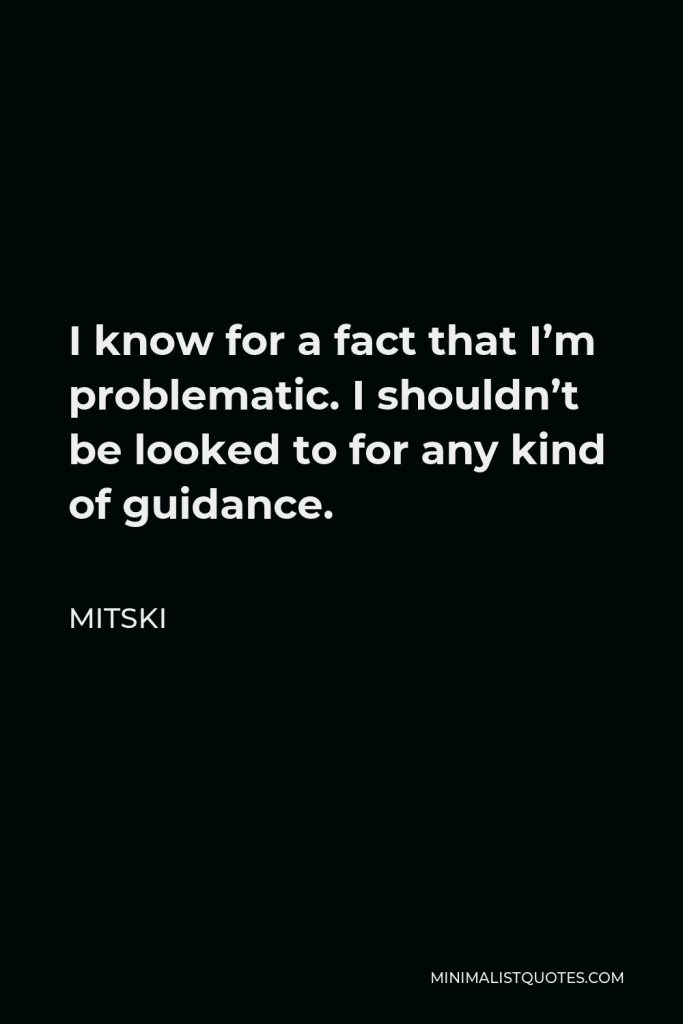

I know for a fact that I’m problematic. I shouldn’t be looked to for any kind of guidance.
MITSKI -





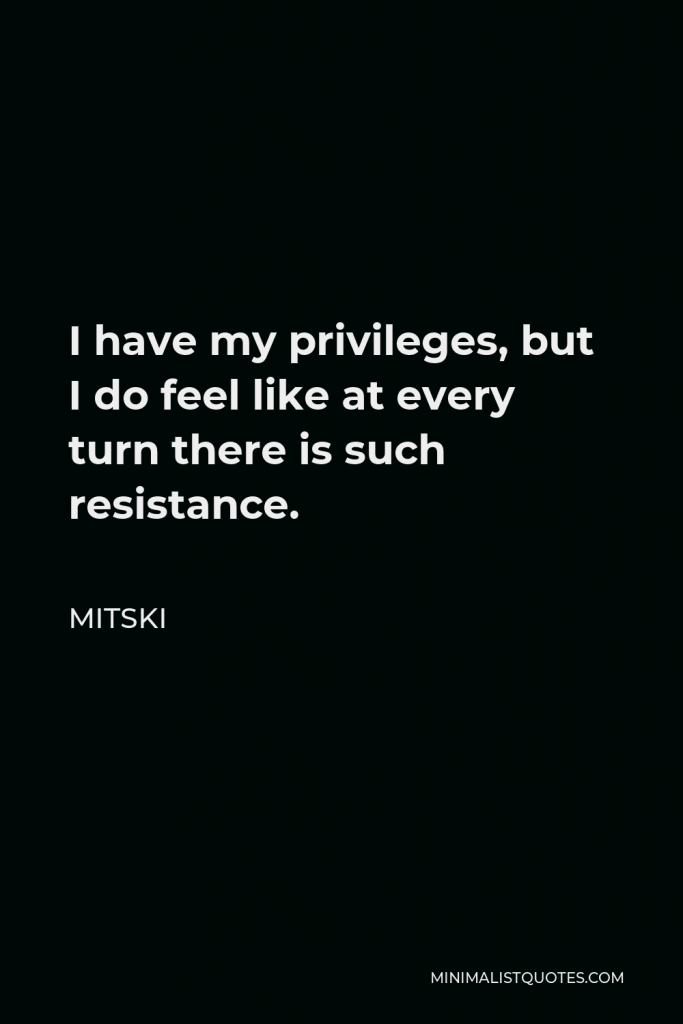

I have my privileges, but I do feel like at every turn there is such resistance.
MITSKI -





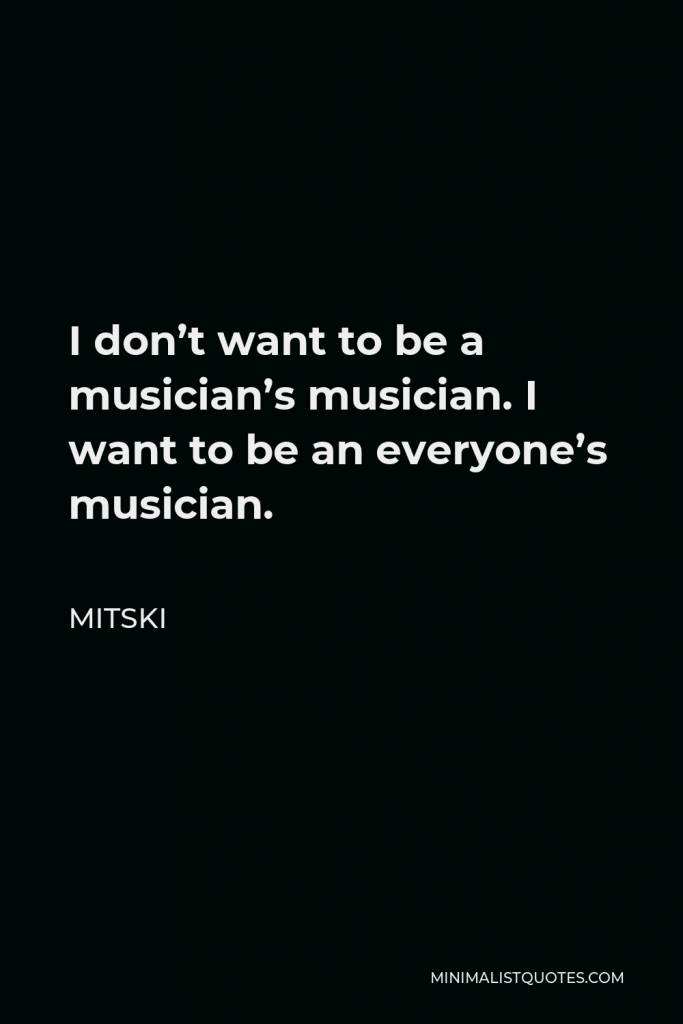

I don’t want to be a musician’s musician. I want to be an everyone’s musician.
MITSKI -





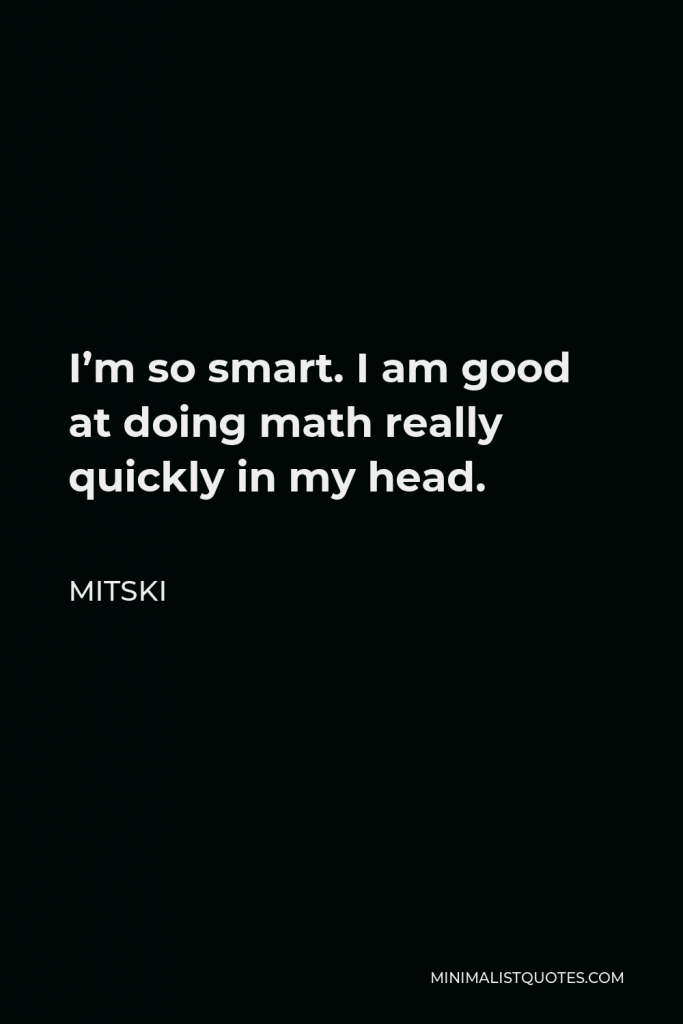

I’m so smart. I am good at doing math really quickly in my head.
MITSKI -





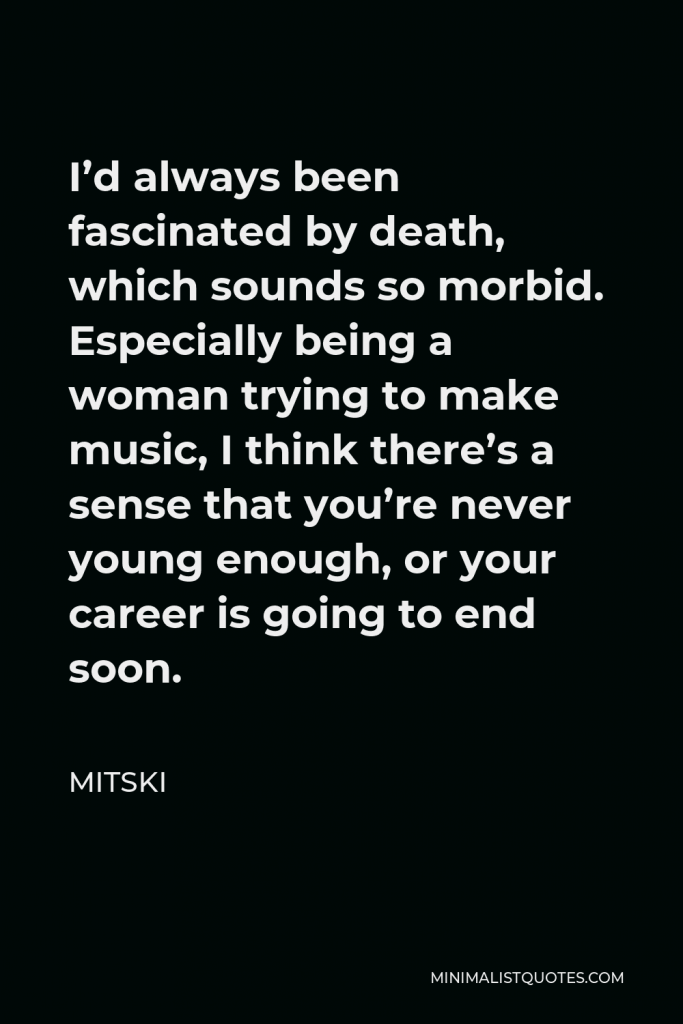

I’d always been fascinated by death, which sounds so morbid. Especially being a woman trying to make music, I think there’s a sense that you’re never young enough, or your career is going to end soon.
MITSKI -





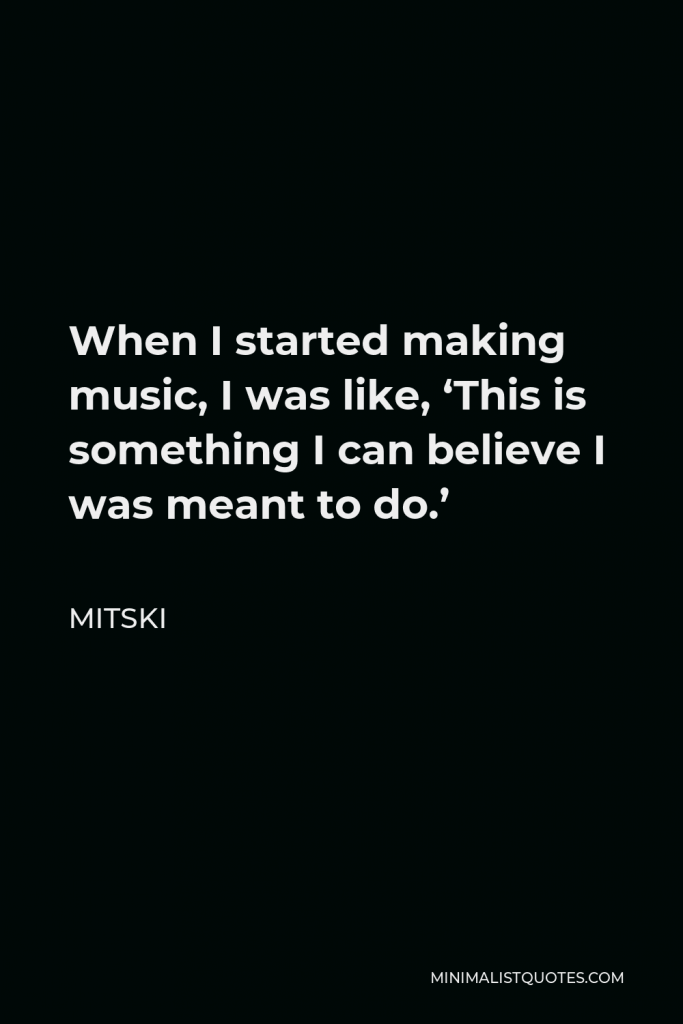

When I started making music, I was like, ‘This is something I can believe I was meant to do.’
MITSKI
